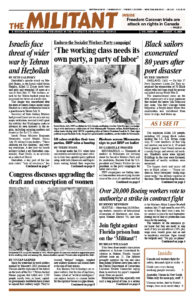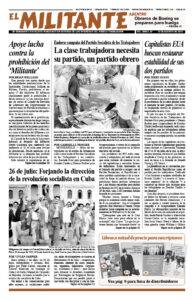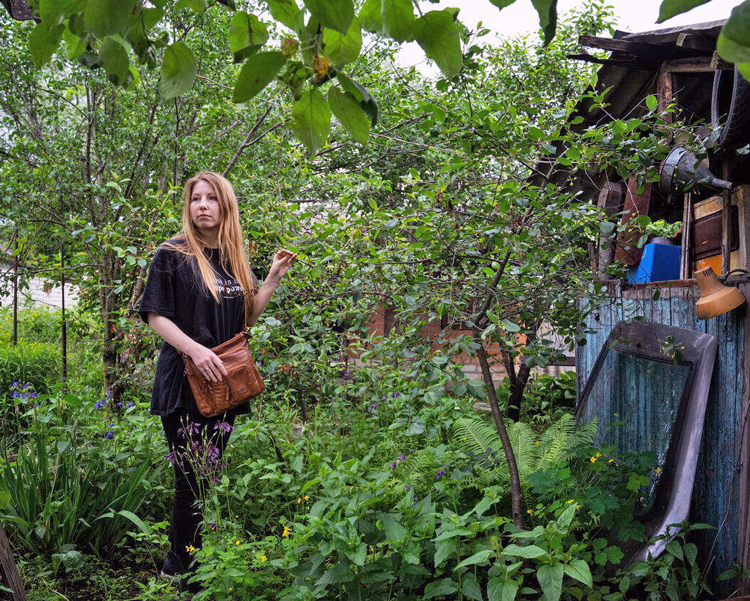The story of a Ukrainian author, Volodymyr Vakulenko, executed by invading Russian forces in March 2022 — and the discovery and publication of his hidden journal by his father and a fellow writer — sheds light on the depth of Moscow’s drive to destroy Ukrainian culture. Russian President Vladimir Putin insists independent Ukraine doesn’t, or shouldn’t, exist, despite yearslong heroic resistance by the Ukrainian people to his reactionary dream of a resurrected Russian empire, with himself as the czar.
Putin’s occupying forces want to “systematically erase” Ukrainian culture, the novelist Victoria Amelina, who made Vakulenko’s buried diary public, said at his funeral. “They want to kill those they cannot turn into a Russian,” she told NPR.
After Russian tanks rolled into his village near Izium, 75 miles southeast of Kharkiv, Vakulenko, 49, a writer of poetry and children’s stories, recorded in a notebook his observations of life under Russian occupation. As a strong supporter of Ukraine’s independence, he had joined the mass popular protests in 2014 in Kyiv’s Maidan Square that brought down the pro-Moscow regime of Viktor Yanukovych.
After Moscow’s troops occupied his village, Vakulenko decided to stay to care for his parents and his autistic son. His home was raided and searched and he was taken away, interrogated and brutally beaten. His refusal to speak Russian and his shelves of Ukrainian-language books marked him as a “nationalist,” a target of Putin’s occupiers.
Returning home but expecting another, more deadly knock on the door, Vakulenko buried his notebook in a plastic bag under a cherry tree in his backyard. He told his father to give it to Ukrainian forces when they liberated the area.
The next day, Russian paramilitaries dressed in black seized him at gunpoint. His body, shot twice with a pistol, was later discovered in the forest. He was buried by the occupying forces along with over 400 others, about half of them women, in a mass grave.
Six months later, a Ukrainian counteroffensive drove Moscow’s forces out of Izium. The mass grave was exhumed, with signs of torture on many of the bodies. It drew international attention.
Putin’s invasion “introduced a reign of terror on the occupied territories, to keep them under control,” Oleksandra Matviichuk, from the Kyiv-based Center for Civil Liberties, told the Guardian. “Occupation is not a matter of exchanging the flag of one state for that of another. Occupation brings torture, deportation, forced adoption, denial of identity, filtration camps, mass graves.”
Secret diary found by fellow writer
Before the war, Amelina was an award-winning novelist and author of children’s stories and essays. But the shock of Moscow’s invasion changed her life. In a poem she described the reality of Putin’s war as “devouring all punctuation / devouring the plot coherence / devouring.”
She started to investigate reports of Moscow’s war crimes, which led her to interview Vakulenko’s parents. Aided by his father, after hours of digging, she unearthed his journal. She said the discovery made her think “about all the Ukrainian manuscripts that have been lost over the past centuries, and this might have been another one.”
In an essay for PEN Ukraine, Amelina wrote she feared the suppression of Ukrainian culture after Moscow’s invasion. She noted how this echoed what happened under the Russian empires of the czars and in the Stalinist-run Soviet Union.
Ukraine culture flowered with Lenin
For a few years in between, however, the Russian Revolution of 1917 inspired millions of working people worldwide. As part of that history-making advance, Bolshevik leader V.I. Lenin led a fight to defend national self-determination as part of the revolution’s proletarian internationalist course. This enabled the flowering of language and culture for Ukrainians, Jews and all nationalities oppressed under the czarist “prison house of nations.”
In her PEN essay, Amelina described how in the 1930s the Stalinist regime in Moscow had Ukrainian writers and intellectuals murdered, their manuscripts destroyed and their memory wiped away.
The mighty revolution led by Lenin and the Bolsheviks, and its support for the rights of Ukrainians, was brutally overthrown in a bureaucratic counterrevolution led by Joseph Stalin. He ordered a mass seizure of grain, which led to the death of millions of working people in the countryside, especially in Ukraine in 1932-33. It was known as the Holodomor, which means “death by starvation.” The systematic purge of Ukrainian culture was part of this.
This year the Kyiv Arsenal Book Festival featured a display of charred books, a testimony to Moscow’s war on Ukrainian literature. They had been salvaged from among 50,000 volumes burned in a May 23 Russian missile strike on a Kharkiv printing plant, one of the country’s largest. The attack killed seven workers there.
The manuscript of Vakulenko’s diary is now kept in the Kharkiv Literary Museum. Along with a selection of his poems and a preface by Amelina, it was published in June 2023 as I Am Transforming: A Diary of Occupation. It was then presented by Vakulenko’s mother and Amelina at the Kyiv book fair.
In her preface, Amelina said, “As long as a writer is read, he is alive.”
Amelina herself was killed, along with 12 others, in a Russian missile attack on a restaurant in Kramatorsk shortly after the 2023 book fair. But not before she succeeded in keeping alive Vakulenko’s — and her — fight for Ukrainian culture.


